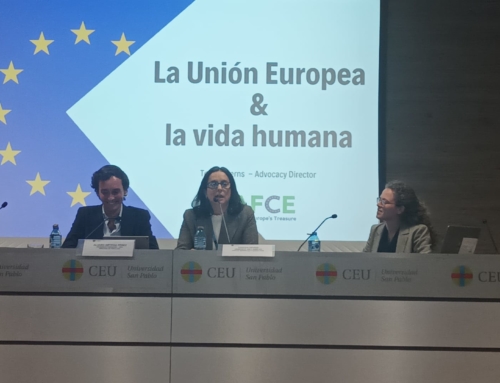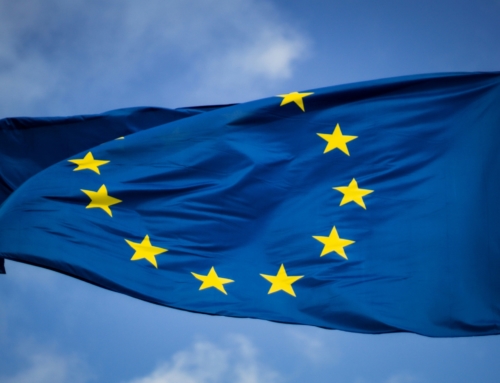Open Letter to
Dr Joseph Muscat, Prime Minister of Malta
Dr Helena Dalli, Minister for Social Dialogue, Consumers Affairs and Civil Liberties
Mr Simon Busuttil, Leader of the Opposition
Brussels – Valletta, 22 December 2016
Excellences,
Honourable Member of the Parliament,
The Federation of Catholic Family Associations in Europe represents 22 national and local associations: we are the voice of families from a Catholic perspective at the European level. FAFCE holds a participatory status with the Council of Europe and is a member of the Fundamental Rights Platform of the European Union.
As Malta is currently discussing the proposed Equality Bill, together with our member in Malta, the Cana Movement Catholic Institute, we would like to highlight some problematic aspects of this draft bill, in order to contribute to the public debate in the Country, while appealing you to take into account the various voices of the civil society that have raised questions about this project.
The Universal Declaration of Human Rights states on its Article 1 that “All human beings are born free and equal in dignity and rights”. In that sense, fighting unjust discrimination and promoting respect for every person, as the Equality Bill intends to do, is a laudable objective. We are concerned however that the bill, as it is now, brings more confusion than clarity in that regard and hinders a series of fundamental rights.
In particular, the Equality Bill threatens freedom of expression and freedom of religion and, by reversing the burden of proof (article 24), discharges the presumption of innocence, which is critical to the right to a fair trial. The reversal of the burden of proof is provided in equality legislation which fundamentally implies a position of authority or power (such as employer-employee), and not in cases concerning the provision of goods and services, as is the case at hand. Therefore, the current reversal of the burden of proof in the Maltese Bill is not respectful of EU judicial standards and guarantees.
Additionally, the proposed bill uses vague and subjective terms, thus reducing its foreseeability, predictability and legal certainty. Together with the reversal of the burden of proof, which makes the defendant incumbent of proving absence of discrimination, it becomes practically impossible to prove innocence when the accusation is grounded on subjective feelings. Harassment, for instance, “shall be deemed to occur where an unwanted conduct related to one or more of the protected characteristics (…) has the purpose or effect of violating the dignity of a person and of creating an intimidating, hostile, degrading, humiliating or offensive environment” (article 2). How does one prove that his or her actions have not ‘offended’ or ‘intimidated’ the alleged victim, aspects that are markedly subjective?
It clearly results from there that the rights of freedom of expression and freedom of religion are threatened, as it is not possible to know what can or cannot be said, based on religious beliefs or not, since people could feel offended and may initiate a case based on the Equality Bill. Allegations of discrimination will not be heard in a court of law, as it should be the case in a democratic society. Instead, they will be ‘judged’ by an unaccountable Commission which can delegate its de facto judicial powers to whomever in the office. This fails to fulfil judicial guarantees and to properly protect the rights and freedoms of Maltese citizens.
Furthermore, the proposed bill does not safeguard conscientious objection concerning the provision of goods or services that go against religious beliefs of citizens or Churches and other religious organisations. It does not safeguard either the ability of Churches and other confessional institutions of selecting employees based on their religion when it is appropriate for the function they will carry. For example, it would not be legitimate for a Catholic school to reject an application from a teacher who disagrees with the values of the Catholic Church. Actually, “less favourable treatment relating to religious practice, access to priesthood or membership in any religious order or other religious communities” would only be allowed “in so far as these relate solely and purely to religious purposes” (article 6(3)g), which are vague but restrictive terms and give room for state interference on religious matters. In short then, the bill limits the autonomy of Churches and consequently harms freedom of religion.
Excellences, Honourable Member of the Parliament, as elected representatives of the people of Malta, you are called to promote their views and listen to their concerns, having the Common Good always in mind. We believe that you should not rush into adopting a Bill that has raised robust and well-founded criticism from all layers of society: businesses, employers, lawyers, students, and churches. We thus hope that you will consider these concerns and withdraw the draft Bill.
We intervene not only to support the concerns of our Member in Malta, but also to highlight that families in Europe share these concerns. We hope that, despite the starting points of view which are often dividing, we will be able to cooperate for the Common Good of the European Union during the upcoming Maltese Presidency of the Council of the European Union. In this regard, we wish you all the best for this important moment for the Maltese people.
Yours sincerely,
| Antoine Renard
President, FAFCE |
Mgr. Charles Attard
Director, Cana Movement Catholic Institute |







